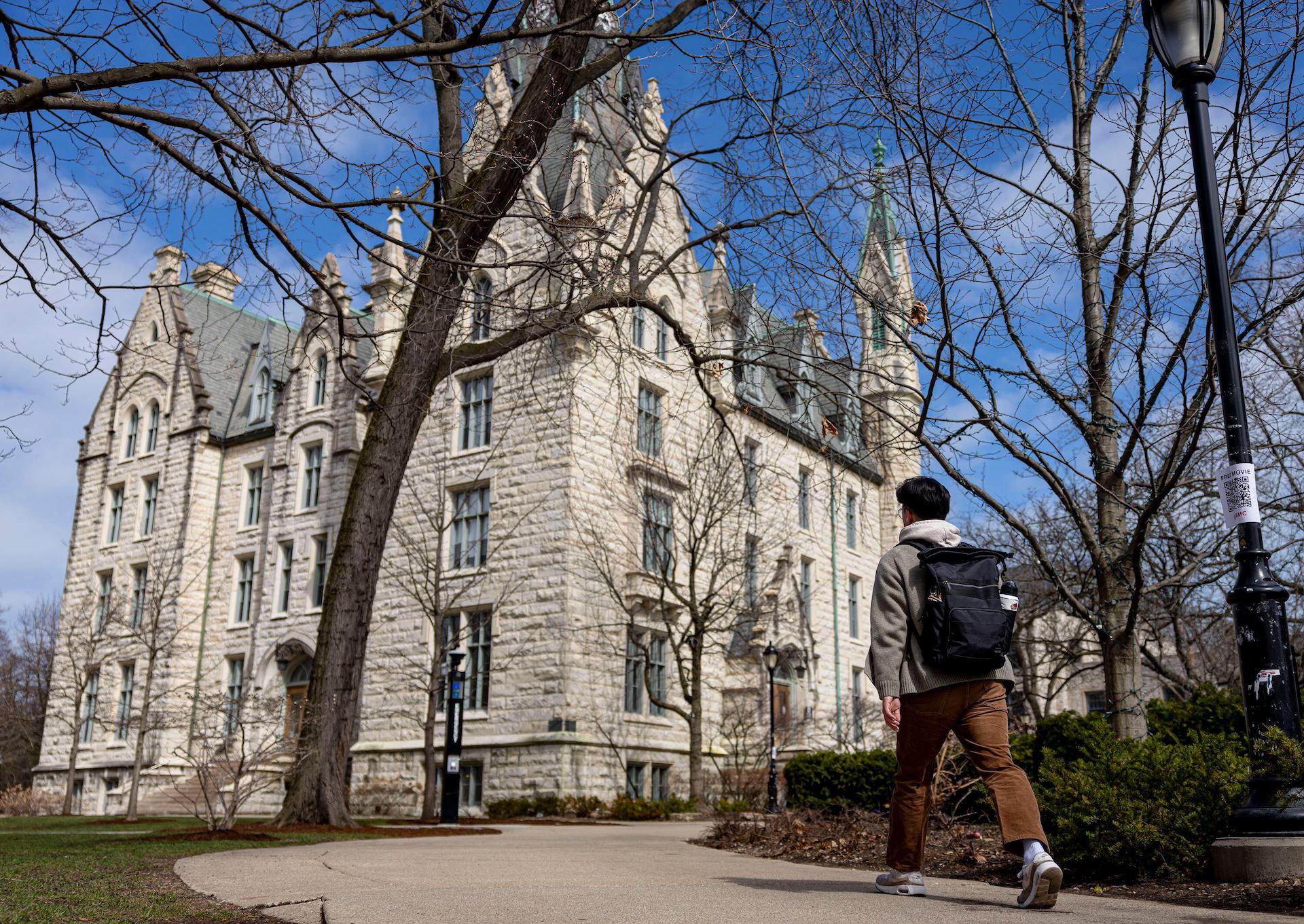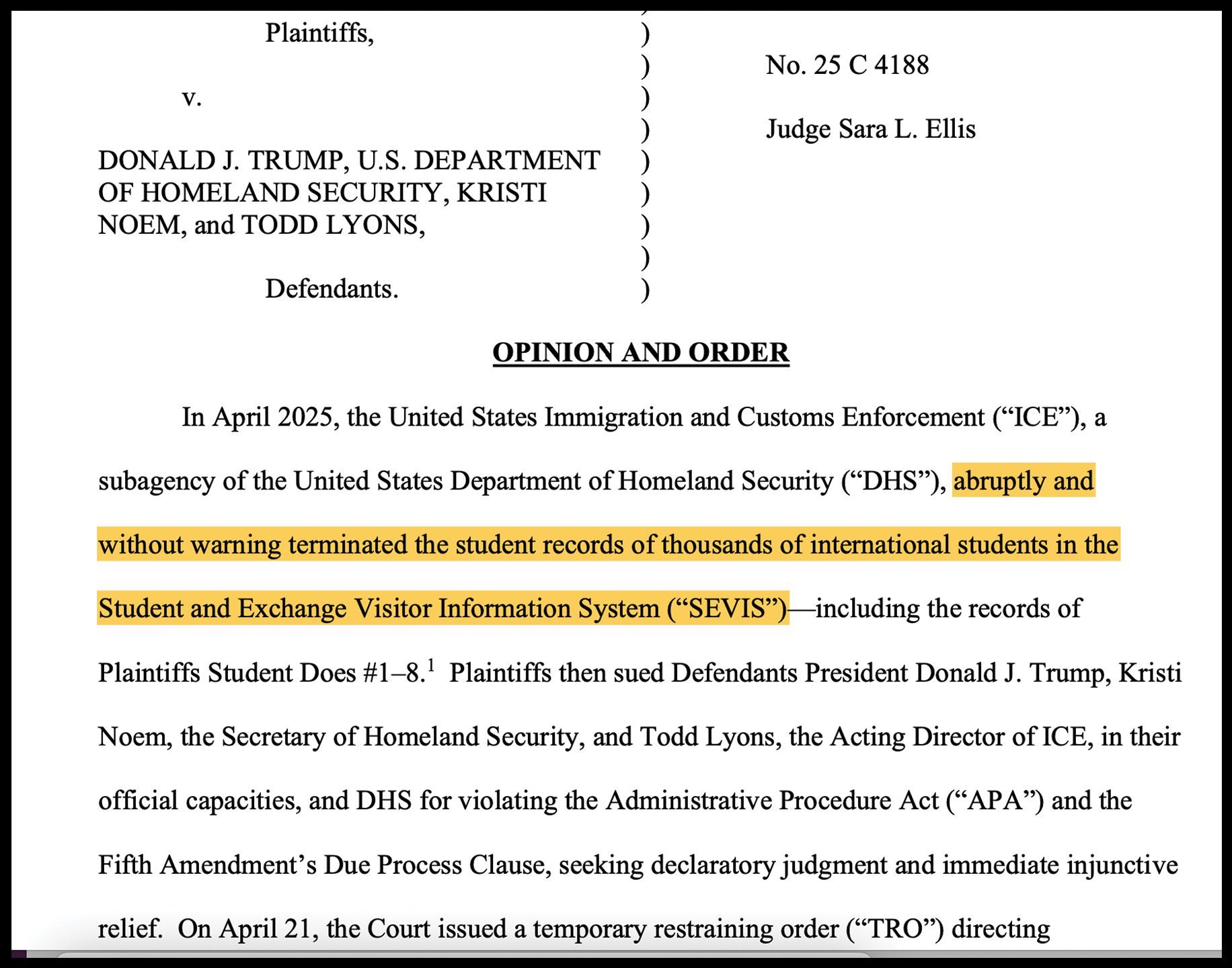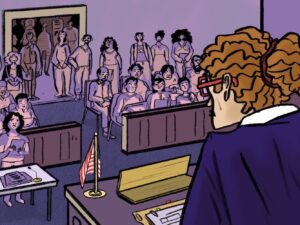 Brian Cassella/Chicago Tribune/TNS/Alamy Live News
Brian Cassella/Chicago Tribune/TNS/Alamy Live NewsThe policy reversal followed mounting lawsuits and backlash from universities and state officials.
The Trump administration recently reversed the revocation of thousands of student visas following weeks of legal challenges.
The announcement came during a court hearing late April in Washington, where an attorney for the Justice Department said visas and legal status for international students would be restored after records were purged from the federal database. The federal government attorney said it was a temporary reprieve as immigration officials develop a new system for evaluating and terminating the records of students studying in the U.S.
The Trump administration’s unilateral cancellation of visas for international students sparked panic and confusion among students in Chicago and across the country. Trump’s recent move to revoke Harvard University’s ability to enroll international students was temporarily blocked by a federal judge.
The Trump administration paused new student visa interviews as it considers requiring all foreign students to undergo social media vetting, according to Politico.
News that puts power under the spotlight and communities at the center.
Sign up for our free newsletter and get updates twice a week.
Amid the confusion, a handful of international students, including a doctoral candidate at Cornell, voluntarily left the country after a judge declined to immediately block deportation. The visa terminations affected students at the University of Illinois, Chicago, Northwestern, DePaul and the University of Chicago.
These notifications came from the Student and Exchange Visitor Information System (SEVIS), the U.S. Department of Homeland Security’s web-based site for maintaining visa information. Students have reported that their visa terminations were due to minor or resolved infractions, like traffic citations. Others had no known violations.
Northwestern journalism graduate Lian from China described living “in constant anxiety” about her visa.
“You never know what’s going to happen tomorrow,” she said. “I drive super cautiously. I’ve heard of students losing their visa over something like a speeding ticket.”
Lian, who asked that her real name not be used due to her current legal status, deleted political posts from her Instagram after hearing rumors of visa revocations linked to social media content, including news coverage of the war in Gaza.
She came to the U.S. six years ago to pursue an undergraduate degree and moved to Chicago for graduate school. Despite living with uncertainty, Lian hopes she can continue pursuing her career in journalism here in the U.S.
“I don’t think journalism is something that has a lot of potential for the future back home because of like salary and the media climate,” she said.
Legal and Political Fallout
After the State Department notified affected students of revocation, they were placed on unpaid leave, lost jobs and internships, and, in some cases, separated from their families.
It’s a move that’s disproportionately affecting students from Asian, Muslim and African backgrounds, according to attorney Farah Chalisa. She said the impact of SEVIS terminations has resulted in lost jobs, internships and unpaid leave.
“Some students feared returning home due to political repression; others felt compelled to self-deport to avoid possible detention,” Chalisa said. “A lot of students are scared to even seek legal help.”
Meanwhile, the Trump administration has not publicly stated why it’s targeting some students over others, according to an NBC report. In March, Secretary of State Marco Rubio stated that the administration has multiple reasons for denying visas and told members of the press that “no one has a right to a visa.”
“We are not going to be importing activists into the United States,” Rubio said. “They’re here to study. They’re not here to lead activist movements.”
But attorneys have pushed back on the White House.
Read More of Our Coverage
In April, Illinois Attorney General Kwame Raoul joined 19 other state attorneys in filing an amicus brief warning that the administration revoked the visas of “800 noncitizen students, visitors and residents,” leaving them susceptible to deportation. The coalition urged the court to block the administration’s policy, arguing “it violates the First Amendment and irreparably harms colleges and universities, public health and safety, and freedom of religious worship.”
In response, students have also filed lawsuits against the ongoing assault by the Trump administration.
In a lawsuit filed in Illinois, international students said the Trump administration violated the Fifth Amendment’s due process and other laws when it abruptly terminated SEVIS records.
“This wasn’t a clerical error,” lead attorney Waleed Naser stated in a press release. “It was a deliberate move that left hundreds of international students stranded, terrified, and stripped of their legal status.”

On May 12, Judge Sara L. Ellis of the Northern District of Illinois agreed and granted a preliminary injunction, ordering the U.S. Department of Homeland Security to reinstate the students’ lawful status.
“The Court cannot blindly accept Defendants’ current characterization of SEVIS termination and ignore the evidence before it,” she said.
The Trump administration’s sweeping revocation policy was an attack on higher education.
“They’re going after students who are here with legal visas, who’ve done nothing wrong,” Illinois Gov. JB Pritzker said.
Institutional Responses and Economic Impact
International students contribute nearly $44 billion to the U.S. economy and support more than 378,000 jobs, according to the Association of International Educators.
Over 1.1 million international students studied in the U.S. during the 2023–24 academic year. Institutions like New York University, Northeastern University and Columbia, which have seen international enrollment grow by 250% in a decade, may now face long-term damage.
Illinois hosts over 60,000 international students, and over 15,300 are enrolled at the University of Illinois Urbana-Champaign.
The faculties of the University of Chicago and the University of Illinois Chicago, expressed alarm about the Trump administration’s focus on international student visas.
“Foreigners in this country are automatically vulnerable,” said W.J.T. Mitchell, a professor at the University of Chicago. “It’s pure abuse of power.”
“It’s ideological punishment for having the wrong opinion,” he said. “If you don’t do the wise thing — self-deport — you risk being forcibly deported.”
Over 150 university presidents, including Harvard and Princeton, signed a petition denouncing “unprecedented government overreach and political interference now endangering American higher education.” University leaders wrote they were open to “constructive engagement” with the administration but opposed “undue government intrusion in the lives of those who learn, live, and work on our campuses.” Local universities, including Loyola, the University of Illinois, Chicago, Chicago State University, Northwestern, Northeastern Illinois and the School of the Art Institute of Chicago, signed the letter.
University of Chicago Professor Yali Amit said some Chicago universities, like the University of Chicago and DePaul, failed to take strong public stands. “Students are scared, and the university has been too quiet,” he said. “They’ll refer students to legal aid, but they haven’t taken a strong stance.”
Faculties launched a petition to pressure the University of Chicago president to sign the letter but was unsuccessful, he said.
Meanwhile, the Trump administration’s targeting of international student visas has raised alarms about the U.S.’s global academic reputation moving forward.
“This is not just political,” Amit said. “It’s about students, who are here from various countries and are getting caught in this strange agenda, to some extent, unclear what it is, even.”
Rahim Kurwa, an assistant professor of Criminology, Law and Justice at the University of Illinois, Chicago, echoed the sentiment.
The Trump administration has labeled students as national security threats, but “in every single incident, there’s little to no substance to these accusations,” Kurwa said.
“It is extraordinarily draconian and deeply undemocratic,” he said. “Its goal is to strike fear into people. It has successfully done that.”
Fatema Hosseini is a Roy W. Howard Investigative Reporting fellow covering immigrant communities for Borderless Magazine. Send her an email at [email protected].


